Be a part of the future of elder care—learn from the most experienced and innovative providers of person-centered care about how to bring dignity, choice, respect, and comfort back into the day-to-day lives of elders. Part of the Leading Principles and Practices in Elder Care series, this invaluable resource—from many of the pioneers of the culture change movement—provides the wisdom and tools needed to turn any care community into a more supportive, person-directed environment.
From this book, readers gain insight into implementing care practices that focus on the person, through the profiles of pioneering model communities that have successfully brought culture change into their organizations. Discover proven approaches to transforming attitudes, practices, physical spaces, and organizational structures to accommodate the collaborative processes essential to personalized care.
This critical resource explores the path to accomplishing organizational change. It guides by example and reveals what is possible and how to overcome the challenges to be faced when effecting change. For practitioners, educators, funders, advocates, surveyors, and professional staff from nurses to social workers to administrators, Models and Pathways for Person-Centered Elder Care provides
- detailed accounts of what person-centered care looks like in practice
- essential considerations for the workforce
- tips and ideas for overcoming common barriers
- a solid business case for implementing culture change and gaining competitive advantages
- concrete perspectives on the issues and processes surrounding new ways of providing care
Readers who are just beginning to adopt culture change in their care communities or those well into the person-centered care journey will find in these pages the inspiration, motivation, and practical strategies to guide their organization towards the future of elder care.
Format: E-book
e-ISBN 978-1-938870-22-4
E-book available through:
Also available through: Chegg, Baker and Taylor, OverDrive, Gardners, and Follett
Leading Principles & Practices in Elder Care: Series Preface
About the Editors
Contributors
Acknowledgments
Preface
Introduction:
Gaining a Competitive Advantage with Culture Change
Scott E. Townsley
Part I. Models
Chapter 1:
The Live Oak Regenerative Community: Developing a New Elder Culture for the 21st Century
Barry Barkan
Chapter 2:
Evolving Models Based on Best Practices
Loren B. Shook
Chapter 3:
The Wellspring Program
Charlotte Eliopoulos
Chapter 4:
The Household Model
Steve Shields
Chapter 5:
Reporting Live from the Road: The Green House Model’s Progress and Practices and the Outcomes They Support
Robert Jenkens
Chapter 6:
A New Model for Skilled Nursing care: Exploring the Nation’s First Urban Model Green House and Its Special Services
Barry Berman
Chapter 7:
Benefits from Implementing Eden at Home: Strengthening and Expanding Elders’ Social Networks in Home Care and Job Satisfaction among Professional Caregivers
Christine M. Merzeder, Ingrid A. Eyers, and Iren Bischofberger
Part II. Practice Wisdom
Chapter 8:
Measuring Your Culture Change Journey: Development of the Artifacts of Culture Change Measurement Tool
Karen Schoeneman and Carmen S. Bowman
Chapter 9:
The Requirement to Honor Choice
Carmen S. Bowman
Chapter 10:
The Labor Management Partnership in Support of Culture Change
Jay M. Sackman and Audrey S. Weiner
Chapter 11:
Making the Business Case for Culture Change in Nursing Homes
Audrey S. Weiner and Orah R. Burack
Chapter 12:
Mobilizing Community Support in Building a Home for Frail Elders: The Green House Residences at Stadium Place
Ted Gross, Mitchell Posner, and Rev. John R. Sharp
Chapter 13:
Or Is It Really Culture Replacement?
Stephen L. McAlilly
Chapter 14:
In Tune with Life: Using Music to Enhance Physical and Mental Well-Being
Concetta M. Tomaino
Chapter 15:
Succession Planning for Culture Change
Richard F. Compton
Chapter 16:
Challenges to the Implementation of Person-Centered Ideal in a Dementia-Specific Long-Term Care Context
Patrick J. Doyle and Robert L. Rubinstein
Part III. Talent
Chapter 17:
Sharing Power, Finding Voice: How Models of Person-Directed Care Support the Role of Direct Care Staff in a Transforming Organization
Anna Ortigara
Chapter 18:
Challenges to Creating Competencies
Ruta Kadonoff
Chapter 19:
Staff Development for Person-Directed Care: Becoming a Learning Organization
Susan R. Misiorski
Chapter 20:
Nursing’s Role in Culture Change
Joanne Rader, Sarah Green Burger, Christine Mueller, and Diane Carter
Chapter 21:
Fostering Culture Change: What Can Social Workers Do?
Wendy Lustbader
Chapter 22:
Dimensions of Diversity
Jeffrey R. Ash
Chapter 23:
Performance Improvement in a Culture Change Setting
Elizabeth G. Weingast
Part IV. Last Word
Chapter 24:
Changing Aging
William Thomas
Index
Audrey S. Weiner, D.S.W., M.P.H., is President and CEO of the Jewish Home Lifecare in New York, which serves 10,000 elders a year through its rehabilitation, long-term skilled nursing, housing, home care, adult day, care management, and transportation services. Dr. Weiner is the author of numerous publications, many addressing the transformation of nursing homes. She was the founding editor of the Journal of Social Work in Long-Term Care, and in 2003 co-edited (with Judah Ronch, Ph.D.) Making the Case for Culture Change in Long-Term Care, the first text to address the topic. Dr. Weiner is also co-editor with Dr. Ronch of Culture Change in Elder Care (2013), which is part of the series Leading Principles & Practices in Elder Care.
She currently serves as Chair and Board member of LeadingAge nationally, is past Chair and Board member of the Continuing Care Leadership Coalition (a New York area nonprofit, long-term care provider association), and is a Board member of the Greater New York Hospital Association. She previously chaired the LeadingAge Ethics Commission and Talent Cabinet.
Dr. Weiner received her doctorate in Social Welfare Administration from the Graduate Center of the City University of New York, and her Master’s in Public Health from Yale University.
Judah L. Ronch, Ph.D., is Dean of the Erickson School at the University of Maryland Baltimore County, the first-of-its-kind professional school that prepares professionals, undergraduate, and graduate students to be managers and leaders to work in aging services. He has researched and written extensively on the debilitating effects of dementia and Alzheimer’s disease and has pioneered major reforms in the long-term care industry to improve the mental health of older adults and the working conditions of those who care for them.
Prior to the Erickson School, Dr. Ronch served as Vice President of Resident Life, Mental Health and Wellness, for Erickson Retirement Communities in Baltimore, where he developed resident service and staff education programs to optimize the mental wellness of more than 20,000 residents across 18 communities.
Dr. Ronch also founded and served as Executive Director of LifeSpan DevelopMental Systems, which for over 30 years created numerous innovative programs of clinical service, research, staff development systems consultation, and organizational development to meet the mental health needs of aging adults in various parts of the United States.
He is the former Executive Director of the Brookdale Center on Aging of Hunter College in New York City and served on the faculties of Vassar College and the University of Miami.
Dr. Ronch’s books include Alzheimer’s Disease: A Practical Guide for Families and Other Helpers and The Counseling Sourcebook: A Practical Reference on Contemporary Issues (1994), winner of the 1995 Catholic Press Association of the United States Book Award. He is co-editor (with Joseph Goldfield) of Mental Wellness in Aging: Strength-Based Approaches (2003), winner of a 2004 Mature Media Award. Dr. Ronch is also co-editor (with Audrey Weiner) of Culture Change in Long-Term Care (2003), and Culture Change in Elder Care (2013), which is part of the series Leading Principles & Practices in Elder Care. His numerous journal articles and professional presentations include contributions in psychotherapy and counseling for older adults, care of persons with Alzheimer’s disease and related disorders, caregiver issues, staff training, and service delivery issues in geriatric care.
Dr. Ronch earned his B.A. in Psychology from Hunter College, CUNY, in 1966, and his Ph.D. in Psychology from Yeshiva University in 1972.
Elizabeth Lunt is a freelance writer, editor, and project manager based in Baltimore, Maryland. She holds a Master’s in Management of Aging Services from the Erickson School at the University of Maryland Baltimore County. She worked for more than two years with Judah L. Ronch, Dean of the Erickson school, to develop new courses, papers, and collaborative projects at the school. She is proud to have worked with each of the contributors to this volume in preparing their submissions. Lunt has also worked in publishing, libraries, and higher education.
Elizabeth is raising two children and was a family caregiver to her father for the last three years of his life, an experience that has informed many of her ideas about the need for culture change in how we care for elders in this country.

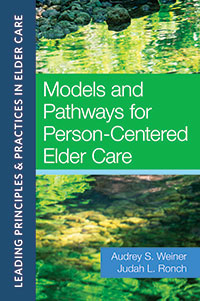
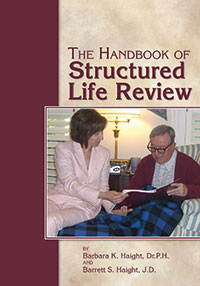
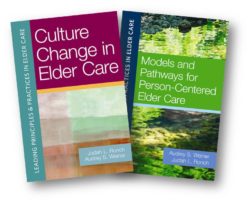
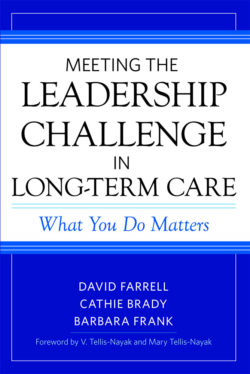
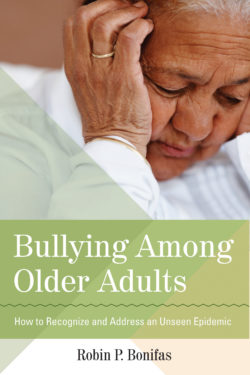
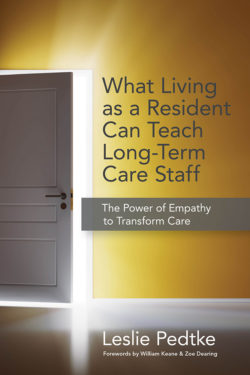
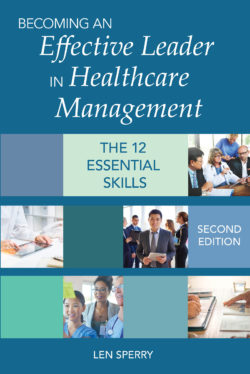
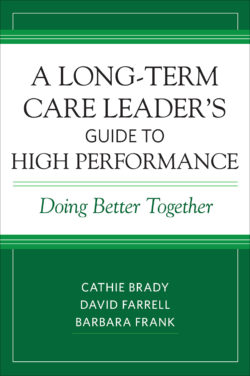
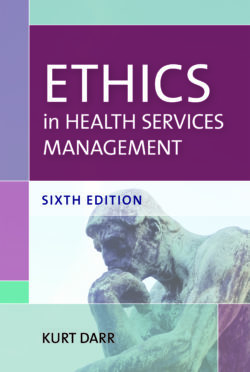
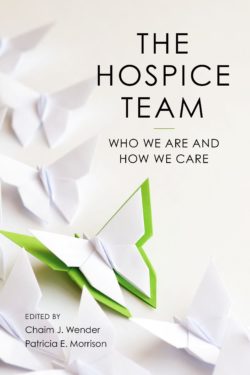
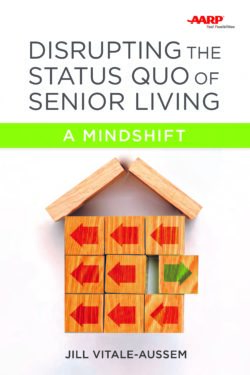
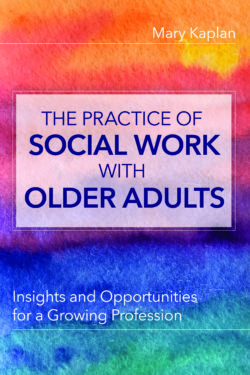
Administrator –
“This book should be read by anyone who cares about the quality of life for people who are older or disabled and need assistance from others, no matter what the setting. The authors handle a wide breadth of topics with voices of authority, experience and passion. They offer inspiring real-world examples, proving that profound change is possible for those who live and work in long-term care.”
—Beth Baker, Author, Old Age in a New Age—The Promise of Transformative Nursing Homes